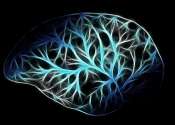First evidence for higher state of consciousness found
Scientific evidence of a 'higher' state of consciousness has been found in a study led by the University of Sussex.
Apr 19, 2017
35
8206
Scientific evidence of a 'higher' state of consciousness has been found in a study led by the University of Sussex.
Apr 19, 2017
35
8206

Electromagnetic energy in the brain enables brain matter to create our consciousness and our ability to be aware and think, according to a new theory developed by Professor Johnjoe McFadden from the University of Surrey.
Oct 20, 2020
58
4521

Findings from a first-of-its-kind study by Indiana University researchers confirm anecdotal evidence that exercise -- absent sex or fantasies -- can lead to female orgasm.
Mar 19, 2012
12
0

Everyone knows what it feels like to have consciousness: it's that self-evident sense of personal awareness, which gives us a feeling of ownership and control over the thoughts, emotions and experiences that we have every ...
Nov 22, 2017
4
3032

A new UNSW study suggests we have less control over our personal choices than we think, and that unconscious brain activity determines our choices well before we are aware of them.
Mar 6, 2019
4
9399

When you can't get to sleep at night, you might explain it to someone as your brain not being able to shut off.
Mar 29, 2018
0
51

Two researchers at Ruhr-Universität Bochum (RUB) have come up with a new theory of consciousness. They have long been exploring the nature of consciousness, the question of how and where the brain generates consciousness, ...
Dec 20, 2021
6
1134

A 35-year-old man who had been in a vegetative state for 15 years after a car accident has shown signs of consciousness after neurosurgeons implanted a vagus nerve stimulator into his chest. The findings reported in Current ...
Sep 25, 2017
0
3945

EPFL scientists propose a new way of understanding of how the brain processes unconscious information into our consciousness. According to the model, consciousness arises only in time intervals of up to 400 milliseconds, ...
Apr 12, 2016
7
825

Lying in bed at night, one of the worst sounds a person can hear is the buzz of a nearby mosquito. Concentrating on the buzzing might keep you from falling asleep, but it also seems to heighten the awareness of your skin ...
Jun 2, 2011
3
2

Consciousness is a term that refers to the relationship between the mind and the world with which it interacts. It has been defined as: subjectivity, awareness, the ability to experience or to feel, wakefulness, having a sense of selfhood, and the executive control system of the mind. Despite the difficulty in definition, many philosophers believe that there is a broadly shared underlying intuition about what consciousness is. As Max Velmans and Susan Schneider wrote in The Blackwell Companion to Consciousness: "Anything that we are aware of at a given moment forms part of our consciousness, making conscious experience at once the most familiar and most mysterious aspect of our lives."
Philosophers since the time of Descartes and Locke have struggled to comprehend the nature of consciousness and pin down its essential properties. Issues of concern in the philosophy of consciousness include whether the concept is fundamentally valid; whether consciousness can ever be explained mechanistically; whether non-human consciousness exists and if so how it can be recognized; how consciousness relates to language; and whether it may ever be possible for computers or robots to be conscious. Perhaps the thorniest issue is whether consciousness can be understood in a way that does not require a dualistic distinction between mental and physical states or properties.
At one time consciousness was viewed with skepticism by many scientists, but in recent years it has become a significant topic of research in psychology and neuroscience. The primary focus is on understanding what it means biologically and psychologically for information to be present in consciousness—that is, on determining the neural and psychological correlates of consciousness. The majority of experimental studies assess consciousness by asking human subjects for a verbal report of their experiences (e.g., "tell me if you notice anything when I do this"). Issues of interest include phenomena such as subliminal perception, blindsight, denial of impairment, and altered states of consciousness produced by psychoactive drugs or spiritual or meditative techniques.
In medicine, consciousness is assessed by observing a patient's arousal and responsiveness, and can be seen as a continuum of states ranging from full alertness and comprehension, through disorientation, delirium, loss of meaningful communication, and finally loss of movement in response to painful stimuli. Issues of practical concern include how the presence of consciousness can be assessed in severely ill, comatose, or anesthetized people, and how to treat conditions in which consciousness is impaired or disrupted.
This text uses material from Wikipedia, licensed under CC BY-SA